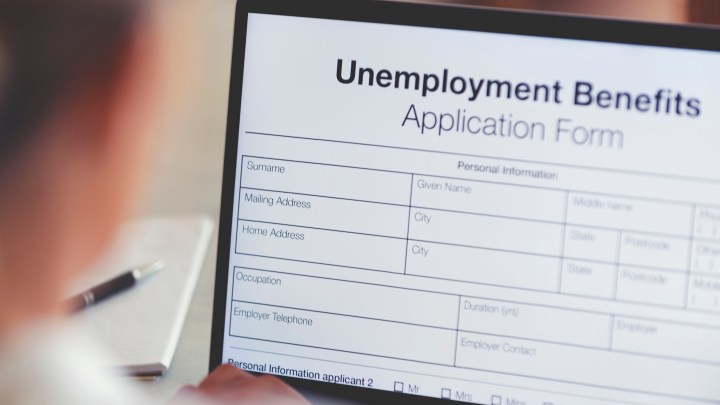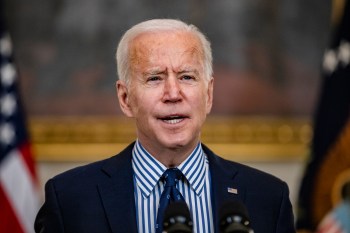
When should pandemic benefits end if there’s no neat end to the pandemic?
When should pandemic benefits end if there’s no neat end to the pandemic?

With vaccinations increasing and hospitalizations and deaths from COVID-19 declining across the U.S., the focus is shifting to life beyond lockdown. Yet there’s growing consensus the pandemic may not fully “end,” at least not in the near future. So how do we determine whether pandemic relief programs are still needed?
Former Federal Reserve economist Claudia Sahm, now a senior fellow at the Jain Family Institute, is known for her eponymous rule used to identify when the government should provide relief like stimulus checks or higher unemployment payments.
“It looks at small increases in the unemployment rate, and it says, ‘Now is the time to help people. We are in a recession,'” Sahm said.
When the pandemic started, unemployment shot up 10 percentage points, so there was no question help was needed. A year on, the math doesn’t look the same. “This crisis is so different,” Sahm said. “It’s very hard to say when we will be back on track.”
In this pandemic recession, the unemployment rate doesn’t tell us much, she said, because people dropped out of the labor force due to worries about child care or health, and opportunities to get back to work were limited by business interruptions.
It’s better, Sahm said, to watch how many of the 20 million jobs the economy shed last year have come back. By that metric, we’re only about halfway back to normal, and people are still hurting. “So that means we keep helping them until they’re back to work,” she said. “And it’s got to be everybody.”
The $300 a week of extra unemployment pay is set to run through Sept. 4, 2021. Economist Michael Strain with the American Enterprise Institute said the generous benefits could slow the recovery. “That is going to keep people out of the workforce for longer than would be healthy,” he said.
Strain said enhanced unemployment payments were needed during lockdowns but that access to vaccines should now guide those policies. “If anybody can stroll into a pharmacy and get a vaccine, I think the justification for restricting business activity is pretty weak,” he said.
Still, even those who can get vaccinated and find a job would be hard hit if restrictions on evictions end too soon, said Robert Hughes, a professor of business ethics at the University of Pennsylvania’s Wharton School.
“We told people, ‘You can’t work for public health reasons,'” Hughes said. “Expecting those people to pay back rent is not realistic.”
A federal court recently struck down the national moratorium on evictions issued by the Centers for Disease Control and Prevention, though there’s a stay on the decision while the Justice Department appeals. About 7 million Americans are still behind on rent, according to census data. Congress has approved about $46 billion in rental assistance, but some states have been slow to disburse the funds.
“About 40% of households can’t pay a $400 emergency without going into debt,” Hughes said. “And if we end up with a lot of people homeless, that’s a crisis.”
There’s a lot happening in the world. Through it all, Marketplace is here for you.
You rely on Marketplace to break down the world’s events and tell you how it affects you in a fact-based, approachable way. We rely on your financial support to keep making that possible.
Your donation today powers the independent journalism that you rely on. For just $5/month, you can help sustain Marketplace so we can keep reporting on the things that matter to you.


















